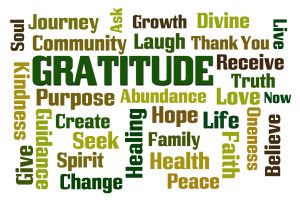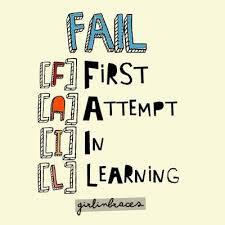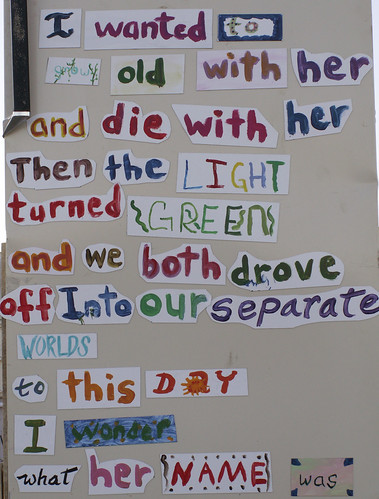Category Archives: Uncategorized
The 12 Days of Gratitude

#12DaysofGratitude
@wasseabinwhs
- Define GRATITUDE in a WORD doc
- Look up definitions and examples of/for GRATITUDE online
- Add to your definition
- Share at your tables
- Write a tweet or a comment on the Gratitude blog post
- Include #12DaysofGratitude and @wawhsroom121 in your Tweet
Here are the prompts for each of the 12 days:
Day 1: Be Thankful. Thankful for waking up, getting out of bed and starting a new day….just being able to breathe. What are you thankful for about WHS?
Day 2: Be happy. Be happy with who you are. Look in the mirror and your reflection. Make sure you are the best YOU. Like that person in the mirror….no, LOVE that person in the mirror. You are unique, put on this earth for a purpose. Be happy with you. What makes you happy today?
Day 3: Be generous to someone. Generosity isn’t giving away money. It can be something very simple as helping someone solve a problem, listening to a friend vent, supporting someone in need with a kind word. What act of generosity have you done recently or how will you show generosity to someone today?
Day 4: Today is the 70th anniversary of the United Nations Declaration of Human Rights. Go to #HumanRightsDay or #Standup4HumanRights and read some tweets. Find one that represents how you feel about this day and retweet it (if you are signed in) with a comment. Make sure to add appropriate hashtags and our classroom account @wawhsroom121 OR copy the tweet and add it to the comments below with an explanation of why you choose it.
Day 5: Reflect often. It is important to reflect on how gratitude actually appears in your life. Ask Yourself “What have I received from others?”
Day 6: Reflect often. It is important to reflect on how gratitude actually appears in your life. Ask Yourself “What have I given to others?”
Day 7: Use your senses. Through our senses—the ability to touch, see, smell, taste, and hear—we gain an appreciation of what it means to be human and of what an incredible miracle it is to be alive. What have you noticed recently about the world around you that you are grateful for?
Day 8: Focus on What You Have Rather Than What You Don’t Have. There is always going to be someone out there who is smarter, better looking, has more money, more successful, but if you focus on the negatives of what you don’t have, you are missing the true celebration of the abundance that you DO have. What is one abundance in your life today?
Day 9: Celebrate good health. What is good health? A day where you have slept well, are pain-free and have lots of energy. Treat your body well; it’s the only one you have. Meditate for five minutes, relax and take deep breathes and focus your energies on the positives in your life. What about your health are you grateful for today?
Day 10: Give Love. If you are full of gratitude you are also full of love. Love is free to give, so give out some love today. Hug a friend, call or text someone you know is lonely or depressed. Laugh with your classmates. How will you remember to give love today?
Day 11: Use reminders. To help you sustain the habit of gratitude use a variety of strategies like
Signage
We put things on our refrigerators as reminders – that dental appointment, the date and time of Auntie’s arrival, etc. We also need reminders about gratitude. Make a few signs with just the word “Gratitude” on them; print them out and place them around your room and your school locker with what you’re grateful for.
Put a Trinket in Your Pocket
Lots of people carry “worry stones.” These are smooth, indented stones that one can hold and rub a thumb on when they are worried. Why not have a gratitude stone? You can reach in your pocket several times a day, and there it is, reminding you to make a statement of gratitude.
Pay it Forward
As you remind yourself of the things for which you are grateful, ask yourself if there is something you can do for someone else as an outward expression of the good you have in your life. It doesn’t matter if it is something as small as opening the door for an elder or letting someone cut in front of you in a line-up.
Express Gratitude to Others
Each day, think of someone to whom you can and should say thank you. It may be a random call to your grandmother or text a family member that has moved away. Tell people that you appreciate them – you will have made their day.
Keep a Journal
Throughout your day, as you think of things you are grateful for, jot them down. At the end of your day, read through that list.
What strategy will you work on now to help you learn to be grateful?
Day 12: Be at peace. This is your reward for practicing 11 days of gratitude! Gratitude revives your brain, it rewires you to celebrate everything you have in your life and will give you emotional happiness. Let go of all your “stuff”, get out of your own way and make a change for 2019 by focusing on gratitude. What do you wish for in 2019?
See the #12DaysofGratitude for inspiration.
Global Read Aloud 2014 has arrived!
Why the Global Read Aloud?
Global collaboration is necessary to show students that they are part of something bigger than them. That the world needs to be protected and that we need to care for all people. You can show them pictures of kids in other countries but why not have them speak to each other? Then the caring can begin. –from GlobalReadAloud.com
Welcome to Room 121!
 I am terrifically excited to be teaching and learning with and from you! I do not mean this lightly. Learning, at its best, is a collaborative activity–that’s right! When we learn together, we will always learn more. At first, this learning together business is tough to figure out. What does it mean? What does it look like? Sound like? How is learning together different than me teaching and you learning?
I am terrifically excited to be teaching and learning with and from you! I do not mean this lightly. Learning, at its best, is a collaborative activity–that’s right! When we learn together, we will always learn more. At first, this learning together business is tough to figure out. What does it mean? What does it look like? Sound like? How is learning together different than me teaching and you learning?
Here is a list for our consideration. Learning together is….
- participatory
- sharing our expertise
- listening closely to each other
- having our voice heard
- communicating with each other beyond “class time”
- providing feedback to each other on the work that we are creating
- moving past the idea that the teacher ‘knows all’
If we can focus on learning, truly learning by taking risks, thinking big, putting forward effort, and never giving up, together, we will be ready for whatever the future holds for us. We will be “learning ready”.
Feedback. Beyond the Mark.

Much of what we do in English class is about process: reading deeply and creating analytic notes, planning, organizing, drafting, editing, and publishing writing, viewing various texts and thinking through the stories they are telling. Before, during, and after the processes, we support our learning with feedback strategies. We develop success criteria, conference together, talk to one another, share our work, and provide written comments. We don’t often fail outright.
But last week, you wrote a test.
It wasn’t a test of memorization, of regurgitating names and dates. Rather, it was a test of skills and problem solving. Show how well you can read and annotate a text. Show how you support your thinking with evidence. Show how you apply MLA rules. Show how you can apply the rules of grammar in editing. And because you could use any resource in the room to help you (other than a person…no phone a friend in this test, although that is a great strategy) –your binder, your hanging folder, the literacy tool kit, dictionaries, and Chromebooks — this test was also about demonstrating how you are able to solve challenges and overcome obstacles in your learning.
Tests can be failed.
What does that test result tell you about your learning? What feedback is it providing to you?
More than anything else this semester, we are learning to be learners. We have been learning about and practicing growth mindset all semester. We have set long-term goals and created a plan to help us reach those goals.
When you get your test back, take some time to think about what the feedback is. Remember that feedback is not about praise or blame, approval or disapproval. Feedback is neutral. It describes what you did and did not do (Wiggins). Then post your thoughts to your blog about that feedback.
Are you kidding? National Poetry Month? There’s such a thing?
Oh ya.
There is such a thing, and it has begun.

Photo Credit: Jackie via Compfight
Unbeknownst to you, National Poetry Month started April 1st! Our remixing of poetry today was right on schedule. And what fun we are having creating ‘new’ poems from existing poetry and then extending the meaning of the poems through illustrations, fonts, spacing, and paper and colour choices.
We are not done with making poetry…not yet.
In the meantime, you might want to check out some pretty cool poetry sites. First up is actually a how-to on formatting your poetry in your blog. I love these pointers.
Another great site to check out is The Teen Writers and Artists Project. The first poem posted is a really poignant, and to the point.
Check it out and leave your thoughts in the comment section below.
MAKE GOOD ART!
The Transformative Power of Reading and Talking Literature

![]() Photo Credit: Antoine Robiez via Compfight
Photo Credit: Antoine Robiez via Compfight
Why stories?
If we ever need to be reminded about the importance of stories in our lives, the month of March does the job with World Read Aloud Day on the 5th, World Storytelling Day on the 20th, and Canada Reads 2014 from March 3 – 6.
And we do need reminding.
Take Stephen Lewis, Canadian philanthropist and activist, who acknowledges during Canada Reads 2014 that he has not been a reader of fiction, but through his participation in Canada Reads he claims “I am determined to start serious reading…[the conversation about books] engages you in the literature.” (7:00 mark)
I needed reminding too.
For too long, I have been reading professional education texts by the likes of Dweck, Hattie, Katz, Kittle, Boushey and Moser, Routman, Allington-you get the idea. As a new literacy coach, the gaps in my knowledge about K-6 literacy, in particular, were unavoidable; I was after all a high school English teacher. But one needs to respond to challenges, right? One way I cope with the queasiness that high levels of risk creates in me is to work really hard.
Head down and go.
The thing about learning is that it is all-absorbing. It’s not that I didn’t have time for literature (both fiction and creative non-fiction); it’s that I only had time for reading that supported my learning. It’s a matter of perceived value.
Don’t get me wrong, I did read–there were all the incredible primary stories that reminded me of the absolute joy that illustrators offer, Giraffe and Bird (what attitude expressed on the page!!) being one of my favourites . And the middle school stories that grab your heart and punch & hug & hold onto you like Wonder does. And the YA stories that push the dark corners of possibility closer to the centre of our consciousness-magic, fantasy, science fiction, crime, war, and love-there’s wonder here, but there’s pain too: The Fault in Our Stars, The Hunger Games, Amy & Roger’s Epic Detour, The Maze Runner, Little Brother, For the Win, Into the Wild. And lastly, I did read the odd adult story like State of Wonder and Encyclopedia of an Ordinary Life.
But, with my return to the classroom and to reading with and along side my students, I am once again immersed in those conversations about life that emerge from the perspective of literature. This is so satisfying. Stories, after all, are the lens through which I have grappled with all of life’s complexities, and helping my students create that lens for themselves is a goal to be sure. So, the students of Room 121 have begun thinking about stories or ways of knowing. We are reading biographies or autobiographies of one sort or another at the moment. Our list of titles includes The Absolutely True Diary of a Part-Time Indian, A Beautiful Mind, Metallica, J.K. Rowling, Into Thin Air, Amelia Earhart, A Heartbreaking Work of Staggering Genius, Steve Jobs: The Man who Thought Different, Her Last Death: A Memoir, Six Months in Sudan, Steven Tyler, A Long Way Gone.
I love the diversity of these titles and I love that in each case the reader can think about the story as a legitimate way to understand his or her life.
But, but, but…..what titles can you suggest for us?
And, and, and…..check back to see what we are thinking about our reading.
Thanks.
Computers in English class? No way!?!
Yes way.
Notice the date of this video. Yikes! It’s catch-up time.



